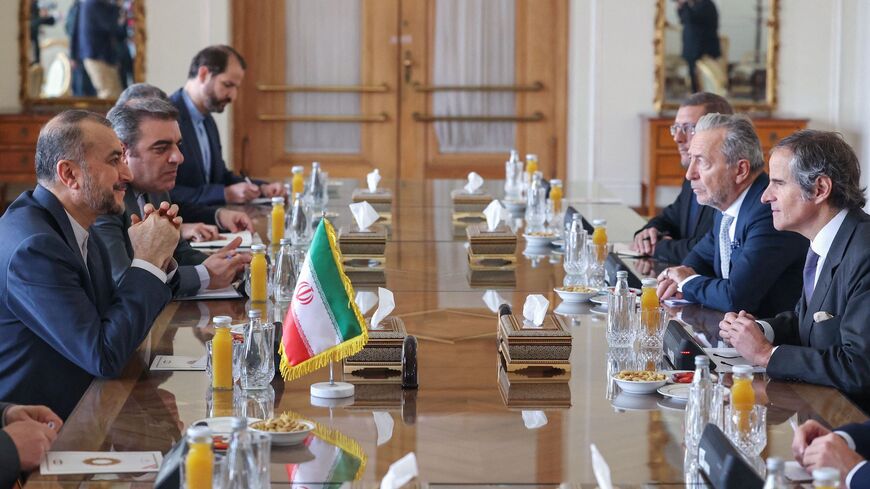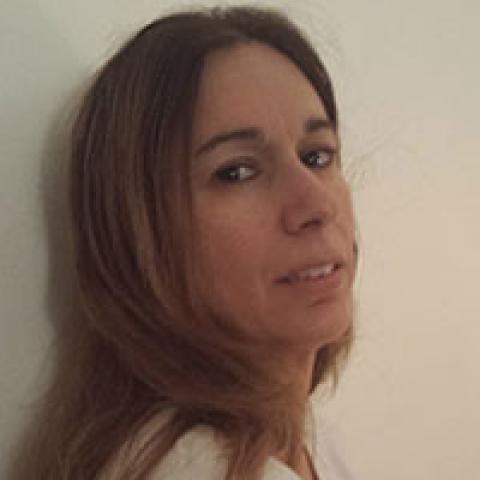Chief of the International Atomic Energy Agency (IAEA) Rafael Grossi pushed back on Monday against Israeli accusations of bias and "capitulation" toward Iran, defending the neutrality and professionalism of his agency.
Speaking in Vienna days after Israeli officials attacked the IAEA for closing two nuclear disputes with Iran, the UN nuclear watchdog’s chief on Monday flatly denied that the agency changed its standards and capitulated "to Iranian pressure.”
"We never ever water down our standards. We stand by our standards, we apply our standards," said Grossi in a press conference. He defended the IAEA as “neutral, it is impartial, it is technical,” adding that he would “never enter into a polemic” with any IAEA member state prime minister.
“We never politicize. We have our standards and apply them always,” said Grossi.
Grossi made this statement only days after the publication of an IAEA report revealing that two out of four inquiries into the presence of uranium-enriched particles in the Fordo and Marivan nuclear sites were closed.
The Israeli Foreign Ministry attacked the IAEA head-on on Thursday, blaming the agency for enabling Iran to get away without all of the required nuclear site inspections.
“The yielding of the Director General of the IAEA and the International Atomic Energy Agency to Iranian political pressure is very disappointing, mainly because the information in the file implicitly points to two faces of blatant Iranian violations of the inspection agreements," tweeted the Foreign Ministry’s spokesperson, Lior Haiat. The spokesperson declined to comment after Grossi’s Monday remarks.
But Grossi also said on Monday that Iran is not complying fully with the March 4 inspection agreement, allowing only a fraction of the monitoring needed at the nuclear sites.
He noted that some progress had been made in Iran’s willingness to cooperate with inspections. Still, Grossi said that “this is a fraction of what we envisaged, and what needs to happen now is a sustained and uninterrupted process that leads to all the commitments contained in the joint statement being fulfilled without further delay.”
The IAEA chief added that “the agency has not been able to perform JCPOA (Joint Comprehensive Plan of Action) verification and monitoring activities in relation to the production and inventory of centrifuges, rotors and bellows, heavy water and uranium ore concentrate (all materials related to nuclear weapons) for two and one-quarter years." This includes "the period after June 2022 when no surveillance and monitoring equipment related to JCPOA was installed and operating.”
Referring to the leaked report, Grossi said on Monday it “indicates that Iran’s stockpile of enriched uranium has risen by over a quarter in three months. This includes its stockpile of uranium enriched up to 20% U-235, which is approaching half a ton, and its stockpile of high-enriched uranium enriched up to 60% U-235, which is well over 100 kilograms.
The French Foreign Ministry told Al-Monitor on Thursday that the report on Iran’s large stockpile showed “an extremely worrying continuation of Iran's nuclear escalation and what we still consider to be highly unsatisfactory cooperation with the International Atomic Energy Agency in implementing Iran's commitments to cooperate."
Concerns over German detainee
In parallel, Europe is concerned about the fate of dual EU-Iran citizens imprisoned in the country.
On Sunday, imprisoned Iranian activist Narges Mohammadi warned that “the life of Nahid Taghavi, a political prisoner, is in danger. She can barely get out of her bed. She goes to the infirmary, receives strong painkiller injections and returns to her bed. The pain is so severe, it can be seen on her face.”
Mohammadi's message was posted on her Instagram account, which is managed by her family in France, based on phone calls with her.
Taghavi, 68, a German-Iranian national known for her activism for the rights of women in the country, was arrested in 2020 and sentenced to 10 years in prison on alleged national security charges. She suffers from multiple health problems, which were aggravated after she contracted COVID-19 in prison in 2021.
Last Friday, two Austrian nationals and one Danish national imprisoned in Iran were released from an Iranian jail. A Belgium-imprisoned aid worker was also released a few days earlier. The release of the four was apparently connected, in exchange for Brussels’ agreement to release an Iranian diplomat convicted of plotting a terror attack on European soil.
Reacting to the release on Sunday, EU foreign affairs chief Josep Borrell noted that the “EU continues to urge Iran to release all its citizens. Our thoughts are with those still detained and their families. We will continue working relentlessly for their freedom.”








